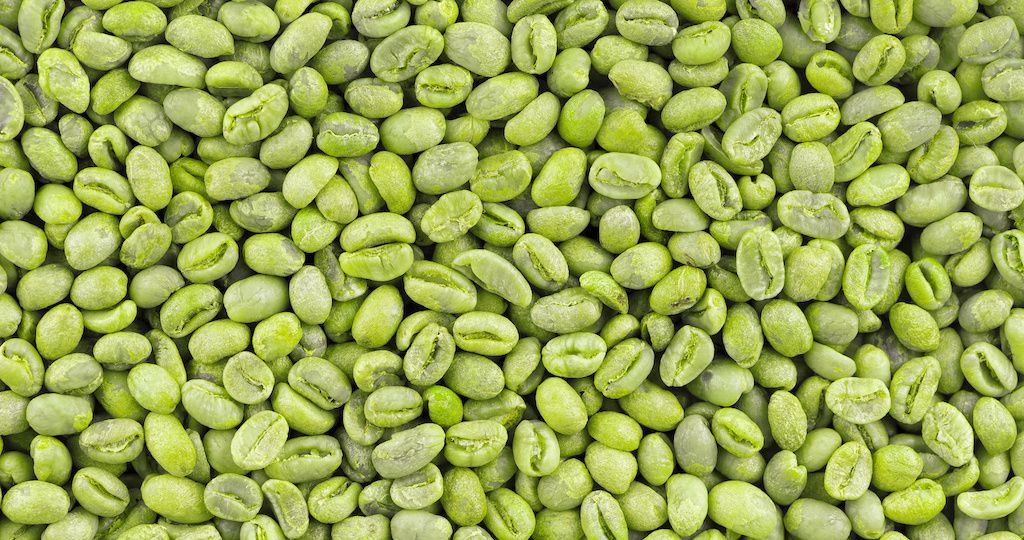
Green coffee beans are the raw, unroasted seeds of Coffea fruits. Unlike their roasted counterparts, these beans retain their natural green color and possess a different chemical composition. The roasting process changes the bean’s taste, aroma, and color, but it also reduces the amount of chlorogenic acid, a key compound in green coffee beans.
Discussing the caffeine content in green coffee beans is crucial due to its implications for health, particularly for individuals sensitive to caffeine or those interested in the health benefits associated with lower caffeine intake compared to regular coffee.
General Health Benefits
Green coffee beans have been linked to a variety of health benefits. These benefits include improved blood sugar levels, reduced blood pressure, and potential weight loss advantages. Studies suggest that green coffee or its extract can improve fasting blood glucose levels, triglyceride levels, and overall lipid profiles, which are essential factors in the management or prevention of type 2 diabetes.
Additionally, green coffee’s impact on lowering blood pressure is noteworthy, with research indicating that its consumption could significantly reduce both systolic and diastolic blood pressure readings, primarily due to the high concentrations of chlorogenic acid present.
Chlorogenic Acid and Its Effects
Chlorogenic acid, abundantly found in green coffee beans, plays a pivotal role in the observed health benefits. Its neuroprotective effects are particularly significant, offering potential resistance against neurodegenerative diseases such as Alzheimer’s and Parkinson’s.
Chlorogenic acid also contributes to healthy weight regulation by reducing the absorption of carbohydrates from the digestive tract, which in turn can lower blood sugar and insulin spikes. These mechanisms underline the broad spectrum of green coffee’s health benefits, extending beyond simple caffeine effects.
Comparison with Black Coffee
When comparing the health benefits of green coffee to black coffee, the distinction lies in the chlorogenic acid content. Green coffee beans, being unroasted, retain much higher levels of this acid compared to roasted beans. This difference translates to more pronounced health benefits for green coffee drinkers, especially in terms of blood pressure regulation and weight management.
The reduction in blood pressure is significantly greater in individuals consuming green coffee, attributed to the chlorogenic acid’s impact.
Caffeine Content in Green Coffee Beans
Green coffee beans contain caffeine, albeit in lesser amounts than their roasted counterparts. A cup of green coffee may contain approximately 20mg of caffeine, compared to 100mg or more in a regular cup of roasted coffee. This variance is significant, making green coffee a preferable option for individuals seeking lower caffeine intake while still benefiting from coffee’s other healthful components.
Impact of Caffeine
The caffeine in green coffee offers several health benefits, including the potential for improved short-term memory and cognitive function. Moderate caffeine consumption, up to 400 mg per day, is considered safe for most adults and can lead to increased alertness and concentration. However, it’s essential to note that individual responses to caffeine can vary, with some people experiencing more pronounced effects than others.
Caffeine Sensitivity and Dosage
Individuals with caffeine sensitivity need to be cautious with their green coffee intake due to potential symptoms such as increased heart rate, anxiety, and shakiness. For those sensitive to caffeine, starting with a low dosage and gradually adjusting based on tolerance is advisable. The FDA suggests limiting caffeine intake to no more than 400 milligrams per day, which equates to about 8 to 20 cups of green coffee, depending on the brew’s strength.
Potential Risks and Side Effects
While green coffee is generally safe for most people, it can cause side effects similar to other caffeine-containing products, especially in caffeine-sensitive individuals. These side effects might include anxiety, jitteriness, and gastrointestinal disturbances. It’s also important for pregnant or nursing women, individuals with heart conditions, and those taking certain medications to consult healthcare professionals before adding green coffee to their diets.
Safe Consumption Practices
To minimize risks and side effects, consumers should adhere to recommended dosages and be mindful of their caffeine tolerance levels. Starting with small amounts and observing the body’s response can help identify a safe and comfortable intake level. Additionally, considering green coffee as part of a balanced diet and not a standalone solution to health issues is crucial. For those interested in green coffee extract supplements, consulting a healthcare provider to discuss the appropriate dosage based on individual health profiles is recommended.
In summary, green coffee beans offer a lower caffeine alternative to traditional roasted coffee, with several associated health benefits. However, awareness and caution regarding caffeine sensitivity and dosage are essential to maximize benefits while minimizing potential risks.
FAQs
Do green coffee beans contain caffeine?
Yes, green coffee beans contain caffeine, though in lesser amounts than roasted coffee beans. A typical cup of green coffee can contain about 20 to 50 milligrams of caffeine, significantly less than the 80 to 120 milligrams found in a regular cup of roasted coffee.
What are the health benefits of green coffee beans?
Green coffee beans are associated with several health benefits, including improved blood sugar levels, reduced blood pressure, and potential aid in weight loss. These benefits are largely attributed to the high levels of chlorogenic acid in green coffee, which can have antioxidant, anti-inflammatory, and metabolism-boosting effects.
How do green coffee beans compare to regular coffee?
Green coffee beans have a higher concentration of chlorogenic acid due to the lack of roasting, which diminishes this compound in regular coffee beans. This makes green coffee potentially more beneficial for certain health aspects, like blood pressure and blood sugar regulation. However, green coffee has less caffeine, making it a better option for those sensitive to caffeine.
Conclusion
Green coffee beans offer a unique alternative to traditional roasted coffee, primarily due to their lower caffeine content and rich chlorogenic acid profile. These factors contribute to a range of health benefits, including improved metabolic health markers and potential weight loss support.
However, while the reduced caffeine content can be advantageous for individuals sensitive to caffeine, it’s essential to approach consumption with awareness of potential side effects and individual tolerance levels.









